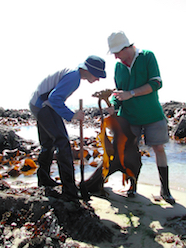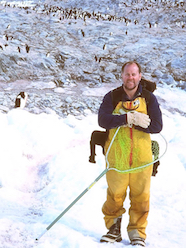Allan Wilson at Otago is a University of Otago Research Theme which explores the health and histories of New Zealand populations. Using evolutionary genomics we study humans, plants and animals.
We seek to answer:
- What are the health implications of our biologically diverse human population, can our approaches to health be improved?
- What shaped our unique flora and fauna, and how might we protect them?
- What are the social implications of genetic technologies, past, present and future?
- How does our ethnic diversity influence our sense of identity as New Zealanders?
The University of Otago is a leading institution in Australasia in the field of evolutionary biology. We are recognised internationally for excellence in molecular evolution.
Our research theme honours the work of the late Allan Wilson, an Otago graduate and exceptional evolutionary biologist.
Allan Wilson's legacy
Human evolution and migration
Our focus is on understanding recent human evolution and migration. We explore the similarities among all humans, as well as the genetic differences that emerge among groups as they have dispersed. This includes interactions with natural environments, resulting epigenetic changes, and adaptations that have taken place along the way. We also look at the potential roles these may have on susceptibility, or resistance, to particular diseases.
Our principal investigators' fields of expertise
Our work has a strong New Zealand focus, but ties into internationally significant programmes:
- The Genographic Project (National Geographic's website)
- UK Biobank (UK Biobank's website)
Sophisticated tools for analysis
The layers of data about human origins are complex. Population dynamics, and biogeographic and evolutionary histories require an integrated interdisciplinary approach that combines detailed genetic, cultural, and linguistic data with new modelling and analytical tools.
Our relationship with the Max Planck Institute for the Science of Human History, Germany, one of the world's leading research centres for linguistic and cultural evolution, underpins our analytical tools and methods.
Max Planck Institute for the Science of Human History
Our collaborative approach embeds human evolutionary genomics research at Otago into a high profile international network of research institutions. This creates opportunities for student and postdoctorate training as well as sharing of technology and resources.
Study with us
New Zealand's flora and fauna
Humans both affected, and were affected by, the various environments and ecosystems they encountered. This was particularly true for the islands of the Pacific, colonised as part of the last main burst of human expansion.
We use the latest tools and methods in evolutionary genetics, biogeography, and palaeogenomics to better understand our natural environment and its evolution.
This includes undertaking genomic analyses of our iconic species to better understand:
- Their history
- The dynamic human interactions with indigenous ecosystems
This knowledge helps us to protect these species for the future.

Professors Jon Waters and Hamish Spencer collecting at Kaka Point.
Principal investigators
- Professor Lisa Matisoo-Smith
- Professor David Bryant
- Professor Neil Gemmell
- Dr Michael Knapp
- Professor Tony Merriman
- Professor Hamish Spencer
- Professor Jon Waters

Professor David Lambert in Antarctica.
Associate Investigators
- Professor Russell Gray (Director, Max Planck Institute for the Science of Human History, Jena, Germany),
- Professor David Lambert (Griffiths University, Australia)
- Associate Professor Craig Millar (University of Auckland)